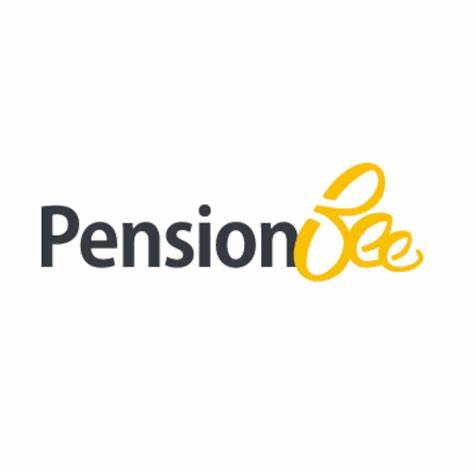ECB Coronavirus and Grounds Maintenance in the Recreational Game
Following the outbreak of COVID-19 (the Coronavirus), all government advice should be followed.
For the avoidance of doubt, due to the developing nature of the outbreak, all grounds teams must ensure that they are monitoring relevant Government and Public Health England (PHE) sites which may change and therefore have an impact on the contents of this document which is correct as of the morning of 25 March 2020.
https://www.gov.uk/government/topical-events/coronavirus-covid-19-uk-government-response
https://www.gov.uk/government/publications/covid-19-stay-at-home-guidance
As of 23 March 2020, the Government introduced increasingly stringent social distancing in a further attempt to reduce the spread of the Coronavirus and the potential impact on vulnerable individuals. It is essential that this advice is adhered to in relation to the health and wellbeing of all individuals.
Instructions from the Government include a host of measures (not limited to):
- Avoid contact with someone who is displaying symptoms of coronavirus (COVID-19). These symptoms include high temperature and/or new and continuous cough
- Avoid non-essential use of public transport
- Work from home, wherever possible. Your employer should support you to do this. Please refer to employer guidance for more information
- Avoid all gatherings in public spaces, noting that pubs, restaurants, leisure centres and similar venues are currently shut as infections spread easily in closed spaces where people gather together.
- Avoid gatherings of more than two people. Keep in touch using remote technology such as phone, internet, and social media
- Use telephone or online services to contact your GP or other essential services
- Increased isolation recommended to 14 days if any family/household member becomes unwell.
- Vulnerable individuals (being those at “High Risk”) to isolate for 12 weeks. The Government has specified that this group of people is at increased risk of severe illness from coronavirus. As of 17 March 2020, this group includes:
- Aged 70 or older (regardless of medical conditions)
- Aged under 70 with an underlying health condition listed below:
- Chronic (long-term) respiratory diseases, such as asthma, chronic obstructive pulmonary disease (COPD), emphysema or bronchitis
- Chronic heart disease, such as heart failure
- Chronic kidney disease
- Chronic liver disease, such as hepatitis
- Chronic neurological conditions, such as Parkinson’s disease, motor neurone disease, multiple sclerosis (MS), a learning disability or cerebral palsy
- Diabetes
- Splenic problems e.g. sickle cell disease or lack of spleen
- A weakened immune system as the result of conditions such as HIV and AIDS, or medicines such as steroid tablets or chemotherapy
- Those who are pregnant
- People who have received an organ transplant and remain on ongoing immunosuppression medication
- People with cancer who are undergoing active chemotherapy or radiotherapy
- People with cancers of the blood or bone marrow such as leukaemia who are at any stage of treatment
- People with severe chest conditions such as cystic fibrosis or severe asthma (requiring hospital admissions or courses of steroid tablets)
- People with severe diseases of body systems, such as severe kidney disease (dialysis)
- Avoid contact with anyone displaying symptoms of coronavirus (these symptoms include, but are not limited to, a high temperature and/or a new and continuous cough).
Home Working, Social Distancing and Grounds Work
As a result of the Government’s announcements, a number of businesses across the United Kingdom have introduced home working for all staff. There will also be a delay to all regular cricket participation and a delay to the regular season.
The latest government guidance means that ground staff/facilities maintenance falls under:
‘Travelling to and from work, but only where this absolutely cannot be done from home, provided you are well and neither you nor any of your household are self-isolating.’
Should you decide that essential members of your grounds staff should continue to look after your facilities during this period of social isolation and are able to do so whilst keeping to the Government’s guidance, please be aware of several things that you should consider doing to minimise the impact of the virus on your teams and your business.
Things to think about with regards to your grounds:
- Public gatherings and use of facilities are suspended.
- Await ECB announcements regarding any regular cricket participation and return to business as usual activities.
- Avoid travel unless absolutely necessary.
- Most of what you do naturally means that you are physically distanced from one another anyway, however, you will need to be particularly mindful of those points where you are not.
- If you are a manager of others then do consider how to maintain effective communication.
- Do your own risk assessment. (For businesses with five or more employees, you are required to formally document risk assessments). When you have decided on the measures you are to take then record it, communicate it and stick to it. It is very important to consider your own working habits and setting and to assess where the risk of transmission is.
- Ensure that all surfaces and equipment are cleaned thoroughly as per government advice. Surface transmission is recognised now as the major source of spread and which can occur after prolonged periods.
- Do ensure that the right type of products are available for hand care.
- Some people may have drastically increased their hand washing habits and may be at risk from dermatitis. Barrier creams and skin moisturisers should be available as well as hand cleansers anyway but check and make sure people know how to use them properly. Hands are the main cause of the spread of the virus.
- Do consider splitting your people into distinct groups of essential workers who never come into contact with each other, ideally not more than two people at a time. This would include staggered shifts/days worked, break times or even separate rest areas. This way, if one member of the team catches the virus and those around them need to self-isolate, the other team pairs will be able to operate.
- Do maintain a minimum distance of two metres from each other, including at break times. If the weather is suitable then take the opportunity to take breaks outside. Do ensure that there is enough shade available to sit out of the sun if they wish to and that they can do so whilst maintaining their distance.
- Do not continue with tasks that require larger team efforts, such as pulling large flat sheet covers. Either use smaller covers or stop using them at all if it cannot be done safely with divided resources.
- Avoid using communal areas including clubhouses, toilets and kitchens unless absolutely necessary. If these are necessary, enforce heightened general hygiene measures in rest areas and communal areas. Establish regular (after each use) cleaning for all work surfaces, kettles, microwaves and sink areas etc. using disinfectant sprays.
- Cleaning cloths should only be used once before being properly washed in a hot cycle washing machine. Alternatively, use disposable wipes or blue-roll type products instead.
- Do not communally use mugs, plates, bowls etc and do make sure that each person has their own items with their name on or wash items in a dishwasher at a high temperature.
- Where essential to use changing facilities, you should bring your own towels and showering/changing items.
- Do establish a culture of cleaning machines thoroughly immediately after use, i.e. wash the machine down and disinfect the handles, grass boxes etc. Products such as kennel disinfectants are sold in bulk and are a cheap and effective way of doing this (and many of them smell nice!)
- Do make sure that you have suitable sprayers with which to apply the products and wipe down with blue roll or similar.
- Continue with normal best practice operations such as:
- Mowing would ideally take place regularly. A good rule of thumb to allow mowing operations to be kept to a minimum would be not removing more that 1/3rd of the leaf in any one operation.
- Mowing heights can be raised by around 1/3rd of normal summer heights without ill effects but turf would ideally be maintained at no more than 25mm/1inch or else turf density would be reduced.
- Growth regulators may be used to reduce the speed of grass growth, and hence reduce the frequency of cutting, but only where a suitably qualified person is available to apply them.
- Watering the turf would ideally continue, as needed, to prevent wilting or surface cracking.
- Fertilisation will still be necessary, if possible, in order to maintain the sort of relatively dense and resilient turf needed for cricket. Inputs of nitrogen could be reduced by somewhere in the region of one third to half of normal rates in order to control excess top growth and limit the likelihood of disease where monitoring of the surfaces is less frequent.
- Verticutting of squares and aeration of outfields is important, but only if you are able to do so whilst keeping within the Government’s guidance and adhering to the spirit of what we are being asked to do as a society.
- Removing the tops from domed covers and storing any flat sheets will protect them whilst not in use.
- Consider what will happen should we all be asked to stay at home.
- Individuals must not be at work if:
- they exhibit any potential symptoms; and/or
- they have been in contact with anybody exhibiting potential symptoms of coronavirus within the past 14 days.
https://www.gov.uk/coronavirus
An assumption throughout this document is that any ground staff member required at any work does not meet the current government guidance for self-isolation (as of 23 March 2020), per the PHE link included above
Prof. Nick Peirce, Chief Medical Officer ECB
David Newman, Emergency Care Coordinator ECB
25th March 2020











